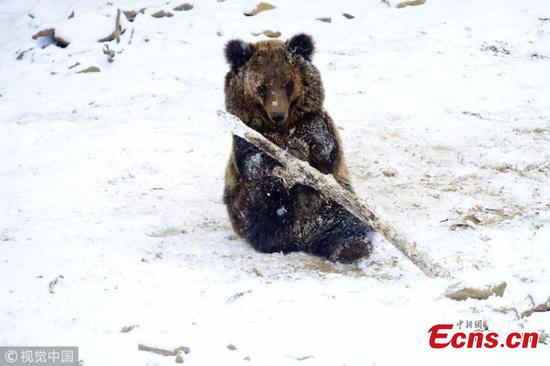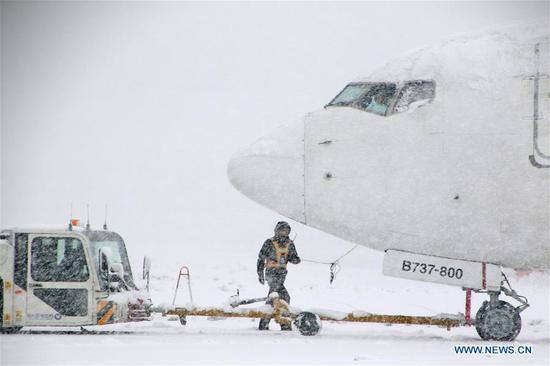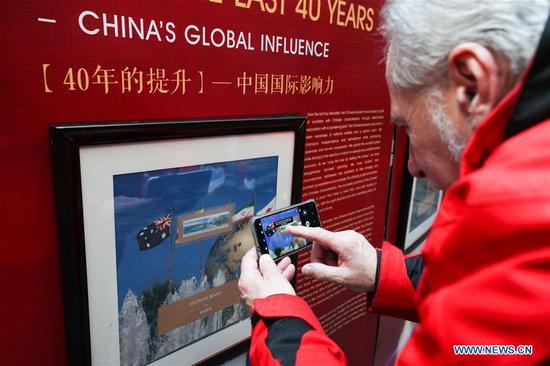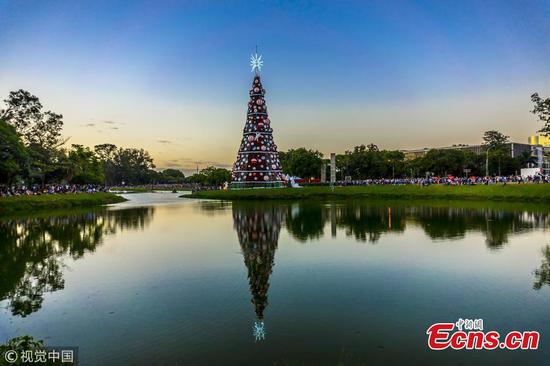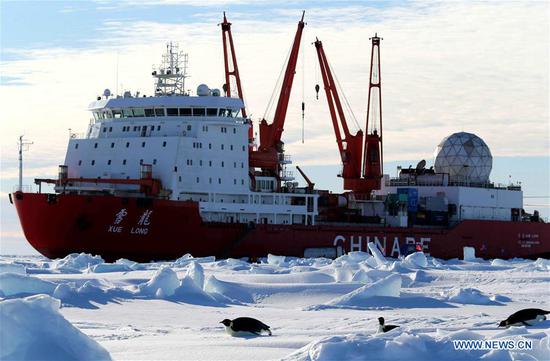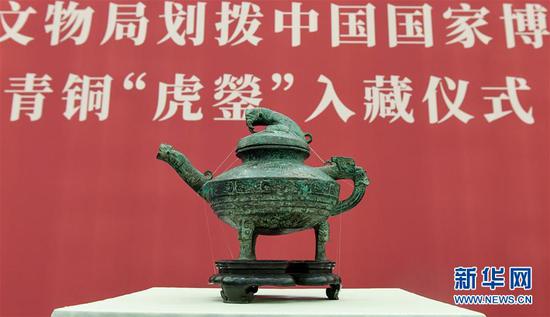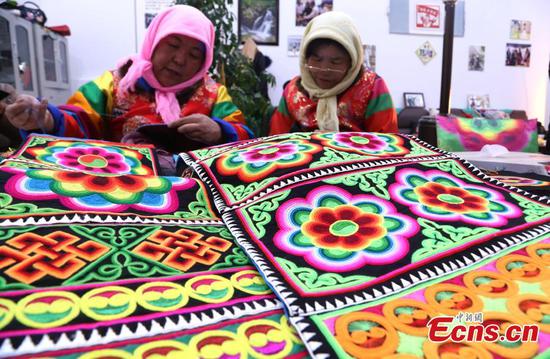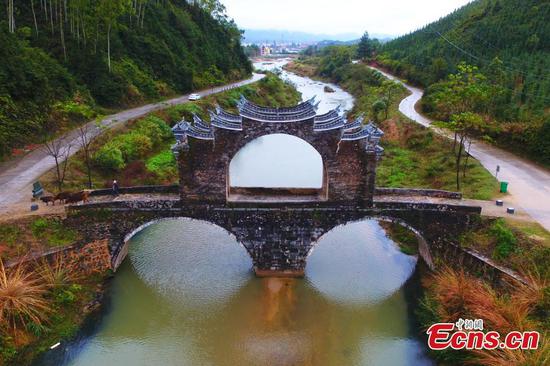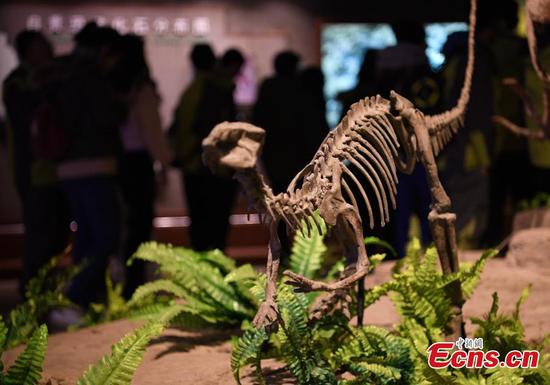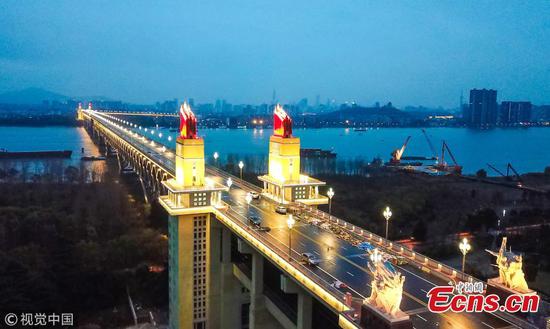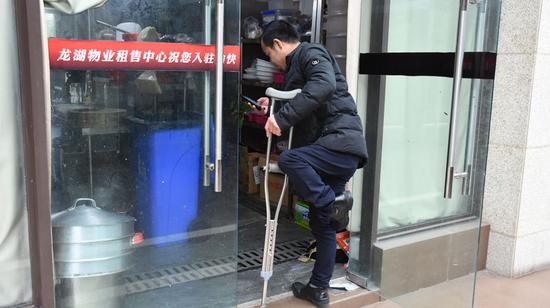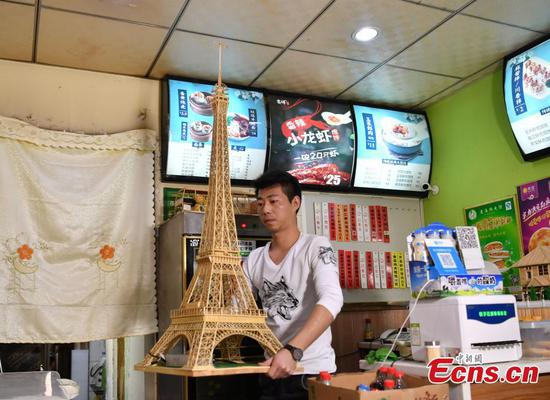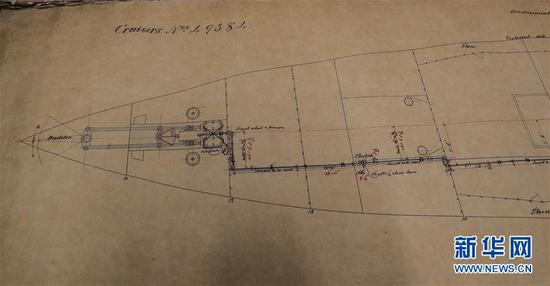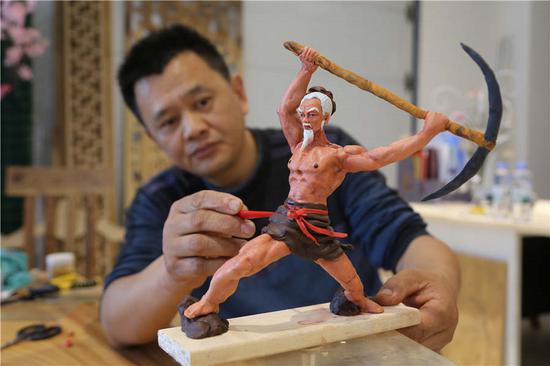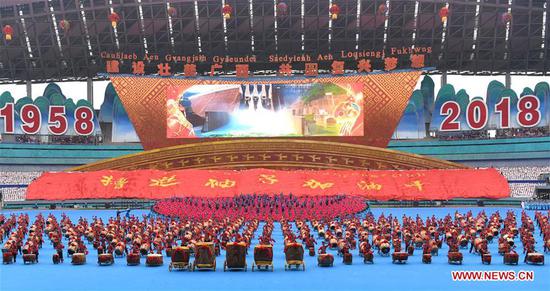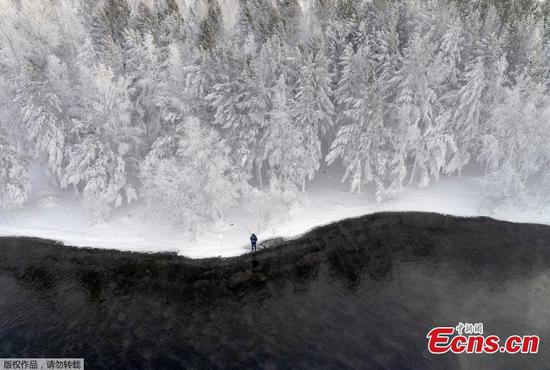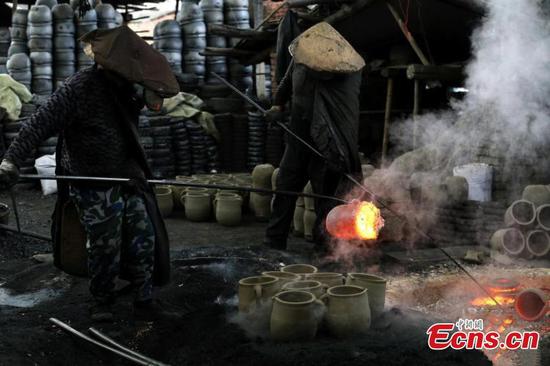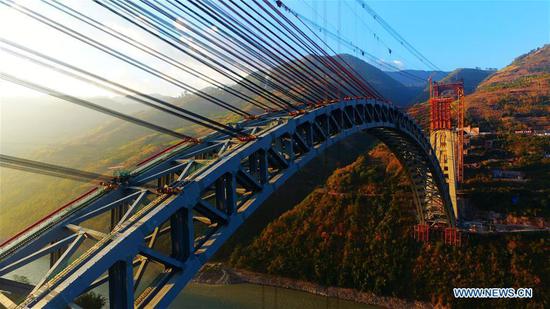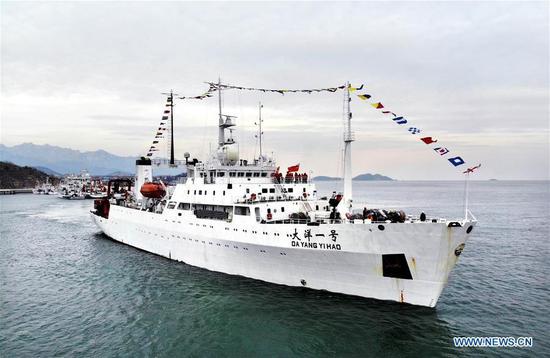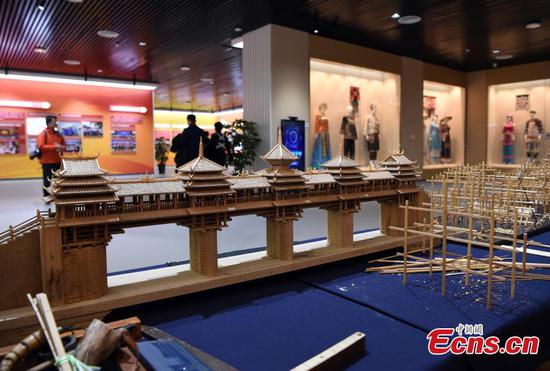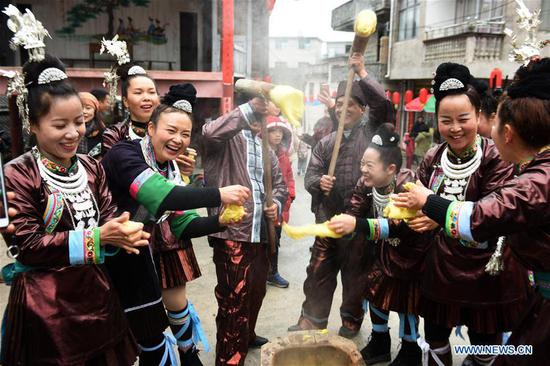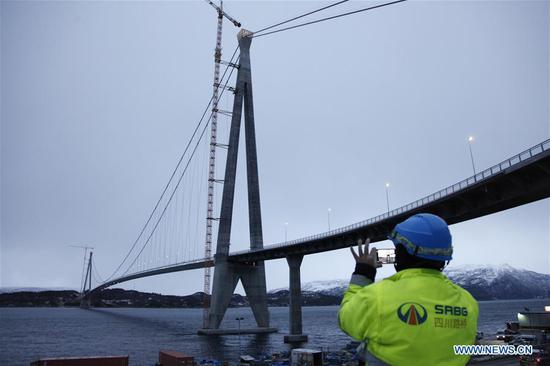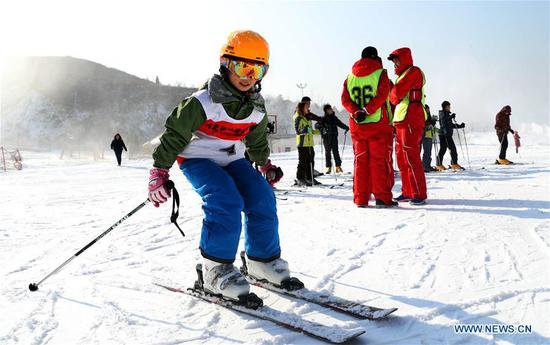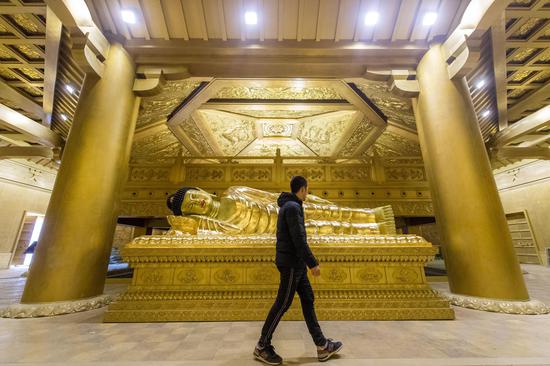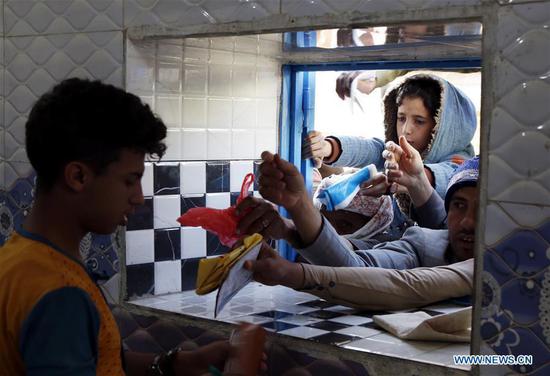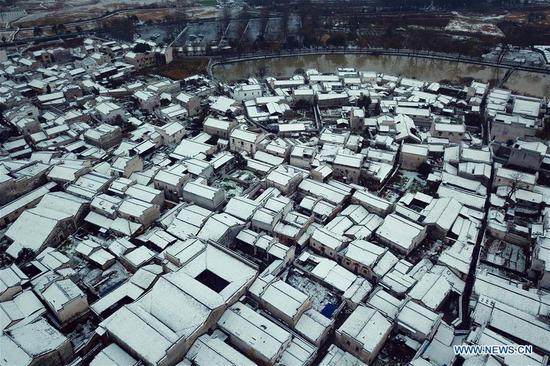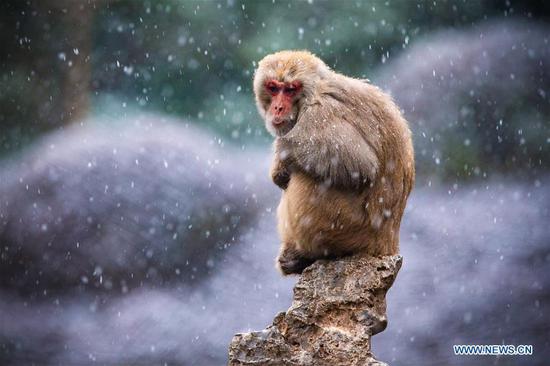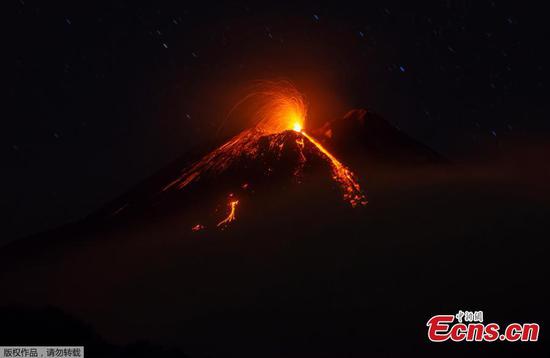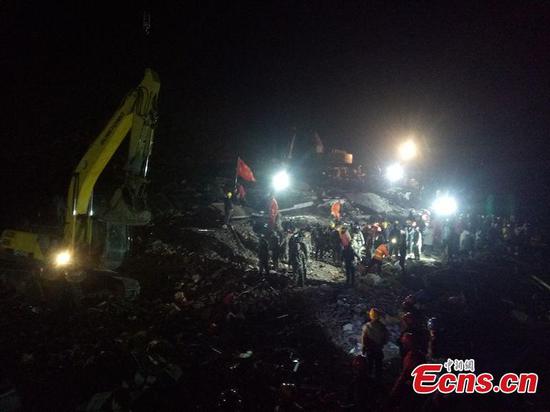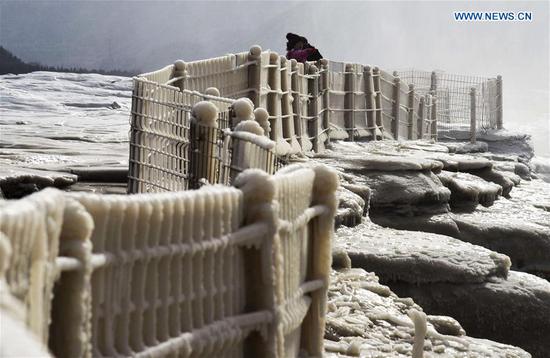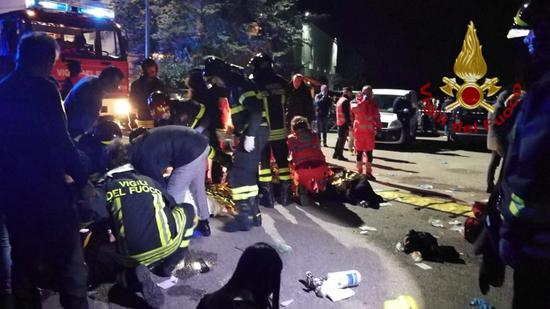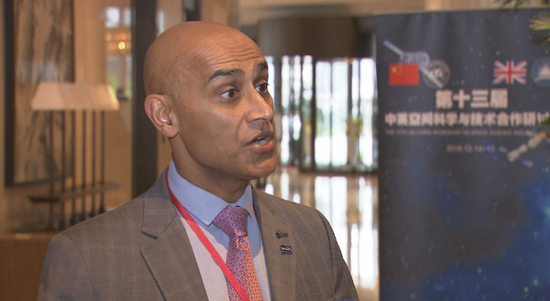
UK professor Anu Ojha said the agri-tech program has been a great example of China-UK space cooperation. (Photo/CGTN)
Hundreds of leading scientists and technologists from the UK and Chinese space research and industry are discussing how to deepen the collaboration and pave the way for future innovation at the 13th UK-China workshop on space science and technology in Ningbo City, east China's Zhejiang Province, from December 11 to 13.
Since a joint laboratory was established by the UK's Science and Technology Facilities' RAL Space and China's Beihang University in 2005, the collaboration has brought together over 2,000 space scientists, technologists and industrialists from more than 90 organizations. The result has been 12 joint research projects and an international research program.
Anu Ojha, director of the UK National Space Academy, said, "A great example is what we call the agri-tech program, so how we can use the data from space to benefit life on earth? Now the UK and China have worked with support from both our governments, and it made a real difference for farmers on the ground, both in Europe and critically in China's less developed regions."
Space science missions have been the traditional domain for collaboration. The first European Space Agency and the Chinese National Space Administration mission, Double Star, was launched in 2003. In the nine years after it was launched, over 1,000 scientific publications using data from Double Star and its European sister mission, Cluster, had been published, written by scientists in Europe, China and across the world.
The vice president of China National Space Administration, Tian Yulong, told CGTN that China has expertise in space technology, engineering and applications, while the UK has a solid foundation in scientific culture and training, so he believes the collaboration has formed a very good complementarity and will further boost the Sino-British scientific cooperation.
The ongoing struggle to recruit skilled scientists and engineers in the UK's growing space sector has made UK efforts to bring space to the classroom and science to life particularly strong. The education program around Tim Peake's mission alone reached at least 1.6 million children and 9,894 schools.
Arfan Chaudhry, the head of International Policy at the UK Space Agency, told CGTN that there's an intent clearly to look at a lunar mission, as well as a lunar base, also looking at further development into Mars and Marshal Programs. So the corporation is essential in terms of space science and space development and will look to work closely with Chinese colleagues on that.









